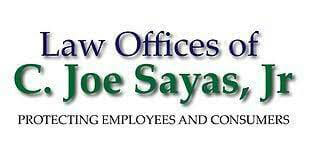Misclassified independent contractors may be entitled to back pay
Workers generally lose when they are classified as independent contractors (ICs) instead of as employees. Companies misclassify real employees as ICs in order to save money. This is good for the employer but not for the employee. Just a few days ago, the California Supreme Court issued a ruling that favors the classification of workers as employees.
Dynamex Operations West, Inc. (“Dynamex”) is a nationwide on-demand, same-day pickup and delivery service with a large number of business clients. Dynamex classified its drivers as independent contractors in order to save money. As independent contractors drivers are required to provide their own vehicles and pay for all of their transportation expenses, including fuel, tolls, vehicle maintenance, and vehicle liability insurance, as well as all taxes and workers’ compensation insurance.
Dynamex obtains its own customers and sets the rates to be charged to those customers for its delivery services. It also negotiates the amount to be paid to drivers on an individual basis. Drivers are generally free to set their own schedule but must notify Dynamex of the days they intend to work for Dynamex. Drivers are generally expected to wear Dynamex shirts and badges. Drivers must comply with a customer’s requirements regarding delivery times and sequence of stops.
Drivers hired by Dynamex are permitted to hire other persons to make deliveries assigned by Dynamex. Drivers are permitted to make deliveries for another delivery company, including the driver’s own personal delivery business. Drivers are ordinarily hired for an indefinite period of time but Dynamex retains the authority to terminate its agreement with any driver without cause, on three days’ notice.
Two Dynamex drivers filed a class action lawsuit against Dynamex alleged that Dynamex misclassified drivers as independent contractors. The complaint claimed that drivers are owed overtime pay and reimbursement for business expenses.
The issue of what standard applies in determining employee or independent contractor status reached the Supreme Court. The Supreme Court ruled that a worker is properly considered an independent contractor to whom a wage order does not apply only if the hiring entity establishes:
- that the worker is free from the control and direction of the hirer in connection with the performance of the work, both under the contract and in fact;
- that the worker performs work that is outside the usual course of the hiring entity’s business; and
(C) that the worker is customarily engaged in an independently established trade, occupation, or business of the same nature as the work performed for the hiring entity. The Court called this the ABC standard.
Applying this standard, the High Court ruled that the drivers are employees. Thus, the court’s ruling presumes that a worker hired by an entity is an employee and places the burden on the hirer to establish that the worker is an independent contractor. If the hirer fails to show that the worker satisfies each of the three criteria, the worker must be treated as an employee, not an independent contractor.
The Law Offices of C. Joe Sayas, Jr. welcomes inquiries about this topic. All inquiries are confidential and at no-cost. You can contact the office at (818) 291-0088 or visit www.joesayaslaw.comor our Facebook page Joe Sayas Law. [C. Joe Sayas, Jr., Esq. is an experienced trial attorney who has successfully recovered wages and other monetary damages for thousands of employees and consumers. He was named Top Labor & Employment Attorney in California by the Daily Journal, consistently selected as Super Lawyer by the Los Angeles Magazine, and is the recipient of PABA’s Community Champion Award for 2016.]


